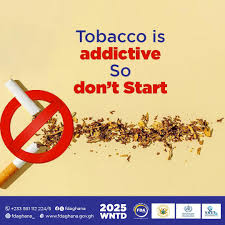The World Bank Board of Directors has approved an additional $40 million in International Development Association (IDA) grants for the Accelerating Impacts of CGIAR Climate Research for Africa project (AICCRA).
This funding is aimed at advancing climate-smart agriculture (CSA) technologies and addressing critical gaps in climate resilience and food security in Ethiopia, Ghana, Kenya, Mali, Senegal, and Zambia.
The new financing will be allocated to Consultative Group for International Agricultural Research (CGIAR) centers through the International Center for Tropical Agriculture (CIAT), facilitating the validation and dissemination of CSA technologies and methods in these countries. This initiative is expected to equip farmers and livestock keepers with the tools to better predict and prepare for climate-related events, thereby enhancing their ability to protect their livelihoods and the environment more effectively.
“We are committed to working closely with our partners to ensure that farmers and other stakeholders benefit from innovative solutions to address the challenges posed by climate change. Investing in climate-smart agriculture is essential for enhancing food security and economic development in a sustainable manner.”
Chakib Jenane, World Bank Regional Director for Sustainable Development.
The AICCRA project aims to strengthen the capacity of governments, regional organizations, farmers, and other relevant stakeholders in Africa, enhancing access to climate information services and validated CSA technologies.
The additional funding will support the scaling-up of key activities in the six beneficiary countries, including knowledge generation and sharing, strengthening partnerships for delivery, and validating CSA innovations through piloting.
A significant component of this effort is the establishment of a Regional Hub for Fertilizer and Soil Health in West Africa. The Regional Hub for Fertilizer and Soil Health in West Africa, as part of the Accelerating Impacts of CGIAR Climate Research for Africa project (AICCRA), will significantly benefit the sub-region by improving long-term soil health and climate resilience.
This initiative will address the challenges posed by climate change and soil degradation in Africa, which are critical for food security and economic development.
Moreover, the hub will facilitate the exchange of information and best practices among stakeholders in the region, including farmers, agricultural researchers, policymakers, and other relevant actors. This collaborative approach is crucial for scaling up successful practices and integrating climate-smart agriculture (CSA) technologies into mainstream agricultural practices.
In addition to the World Bank’s commitment, other partners are stepping forward to support the AICCRA project. The Bill & Melinda Gates Foundation intends to commit $18.8 million in parallel financing to catalyze AICCRA’s impact. Furthermore, the Office Chérifien des Phosphates (OCP) will provide $5 million to support the new hub for soil fertility.
Boutheina Guermazi, World Bank Director of Regional Integration for Africa and the Middle East stated, “These collaborative efforts reflect a shared commitment to addressing the challenges posed by climate change and soil degradation in Africa.”
Additionally, he emphasized that the effects of climate change on the food security situation in Africa call for regional solutions and strong partnerships to achieve sustainable impacts and reduce poverty on a liveable planet.
The International Development Association (IDA) is the World Bank’s fund for the poorest, established in 1960, providing grants and low to zero-interest loans for projects and programs that boost economic growth, reduce poverty, and improve the lives of the world’s poorest people.
IDA is one of the largest sources of assistance for the world’s 76 poorest countries, 39 of which are in Africa, with resources helping to effect positive change in the lives of the 1.6 billion people living in the countries eligible for its assistance. Since its inception, IDA has supported development work in 113 countries, with annual commitments averaging $21 billion over the past three years, with about 61% going to Africa.
These activities are part of a broader effort to address climate change and soil degradation in Africa, emphasizing the need for regional solutions and strong partnerships to achieve sustainable impacts and reduce poverty. The World Bank’s commitment, along with contributions from other partners like the Bill & Melinda Gates Foundation and the Office Chérifien des Phosphates (OCP), reflects a shared commitment to advancing climate-smart agriculture and improving food security in Africa.
READ ALSO: GMet Sounds Alarm on Intensifying Weather Conditions







